Imagine an eCommerce world where your website knows exactly what a customer wants before they do—offering tailor-made recommendations, answering questions in real-time, helping with clothing fitting or visualizing interior details in customers’ homes, and even predicting future purchases. This is not a distant future but a reality today, powered by AI.
In fact, the global AI in eCommerce market is projected to grow from $5.79 billion in 2023 to $50.98 billion by 2033, reflecting a compound annual growth rate (CAGR) of 24.3%[1]. This significant growth underscores the increasing adoption of AI technologies by e-commerce businesses aiming to stay competitive and meet evolving consumer demands.
From AI-powered chatbots that handle customer queries with human-like precision to smart algorithms that optimize inventory and prevent stockouts, AI is driving efficiency across the eCommerce landscape. Let’s explore the most powerful ways AI is transforming the industry.
How AI is Transforming E-Commerce
From personalization to pricing strategies, customer care to search capabilities, with AI utilized for them, e-commerce businesses are able to enable seamless shopping while maximizing back-end functions. Below are the spheres in which AI is ushering a revolution.
eSelf’s AI Video Shopping Assistant – for perfect Customer Service and Support
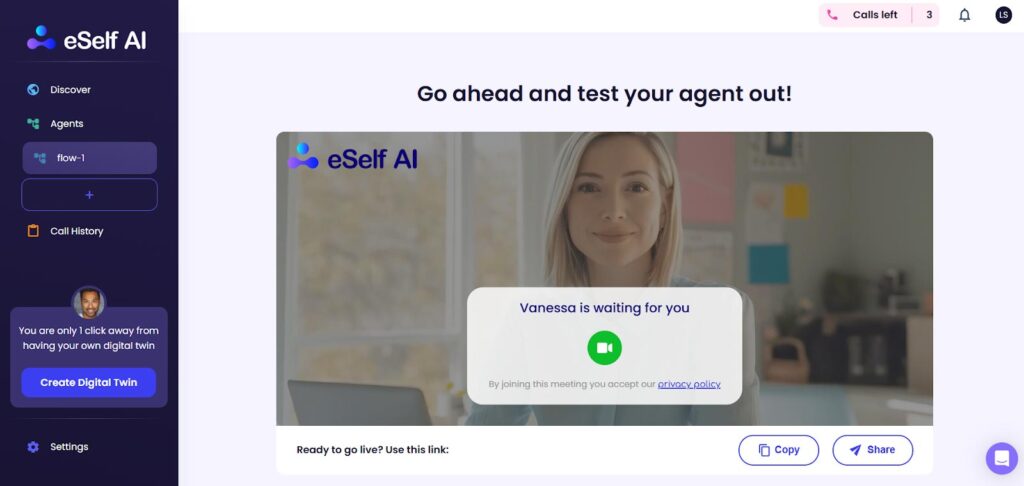
eSelf brings a human touch to online shopping with AI-powered video shopping assistants. Instead of browsing through endless product pages, customers can interact with virtual shopping assistants who provide real-time guidance, answer product questions, and even offer styling or usage tips via video.
When a shopper needs assistance, the AI-powered video assistant steps in, offering real-time, interactive support. The AI understands natural language and visual cues, ensuring it responds accurately to customer queries. Over time, machine learning algorithms refine responses based on past interactions, improving efficiency and personalization.
Why it matters:
- 80% of customers prefer engaging with a real person when making purchase decisions. eSelf bridges this gap with AI-driven video consultations.
- AI video assistants reduce customer support costs by up to 30%, freeing up human agents for more complex queries.
Amazon’s Alexa Shopping AI Assistant – The Power of Voice Commerce
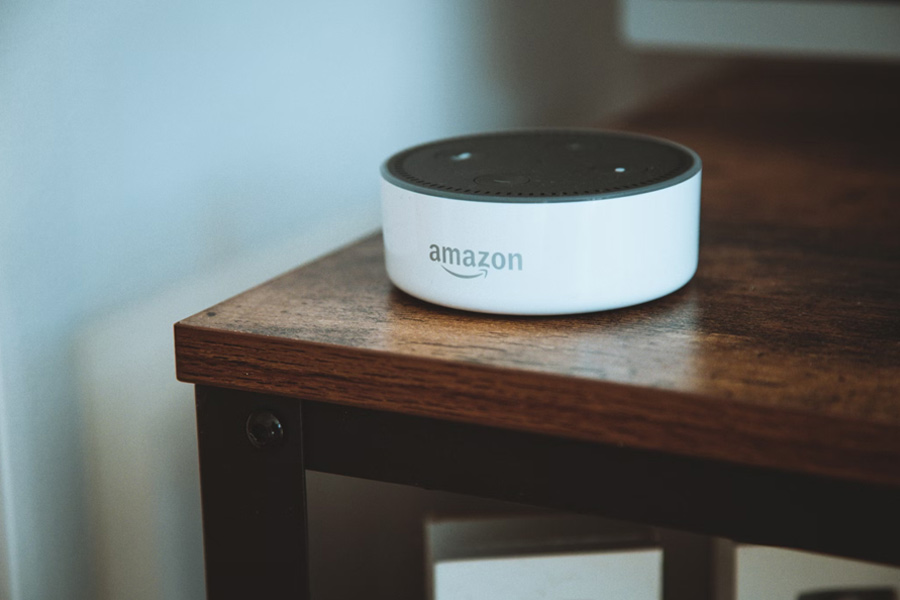
Amazon integrates AI-powered voice shopping through Alexa, allowing users to search for products, reorder past purchases, and receive personalized recommendations—all hands-free.
Alexa uses natural language processing (NLP) and machine learning to understand user commands, whether it’s searching for a product, adding an item to a cart, or completing a purchase. The AI learns from past shopping behavior, making smarter recommendations over time. Alexa’s predictive algorithms can even anticipate shopping needs based on reorder patterns, notifying users when they might run out of essential products.
Key benefits:
- Up to 43% of voice device owners use voice search for shopping [2].
- Alexa’s AI analyzes shopping habits to suggest products before users even ask, improving customer retention.
Etsy’s AI-Powered Search & Personalization – Smarter Recommendations, More Sales
Etsy utilizes AI and machine learning in eCommerce to refine product search results and enhance recommendations based on user behavior, past searches, and purchase history.
Etsy’s AI engine continuously analyzes millions of data points, including search queries, click patterns, favorited items, and past purchases. By understanding shopping habits, AI tailors search results and product recommendations in real time. The system also adapts to seasonal trends, ensuring that product visibility aligns with customer demand.
How it improves conversions:
- AI-driven personalization can increase conversion rates by 15-20% [3].
- 91% of consumers are more likely to shop with brands that provide relevant offers and recommendations [4].
AI for Lead Generation – Drift’s Conversational AI

Drift leverages AI-powered chatbots to engage visitors in real time, qualify potential buyers, and seamlessly connect them with sales teams.
Drift’s AI chatbot uses natural language understanding (NLU) to engage visitors in meaningful conversations. It asks relevant questions, gathers lead details, and scores potential buyers based on their responses. If a lead shows high purchase intent, the chatbot instantly connects them to a live sales representative. AI continuously refines its engagement strategies based on past successful conversions, making lead generation smarter and more efficient.
Why it’s the best AI for lead generation:
- AI-driven chatbots can increase lead conversion rates by 30-50% [5].
- More than 60% of customers expect 24/7 availability [6]—Drift ensures businesses never miss a lead.
AI for Personalized Marketing – Klaviyo’s Predictive Analytics
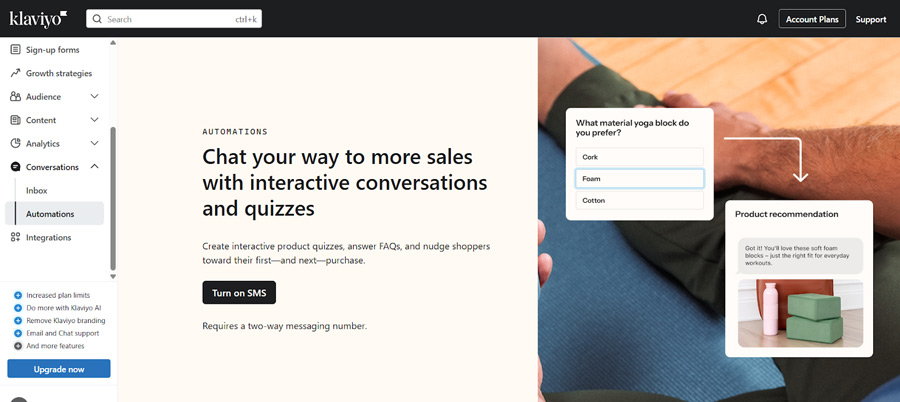
Klaviyo uses AI-powered automation to analyze customer behavior, predict future purchases, and deliver highly targeted marketing campaigns. It boosts sales with AI-powered email and SMS marketing.
Klaviyo’s AI studies purchase history, browsing activity, email open rates, and engagement levels to create detailed customer profiles. The system then uses predictive analytics to forecast future behaviors, such as when a customer is likely to make another purchase. Automated campaigns are then triggered at the optimal time, ensuring that marketing messages reach customers when they are most likely to convert.
How it drives revenue:
- AI-based personalization leads to a 10-15% revenue increase for eCommerce brands [7].
- Artificial intelligence can help companies reduce cart abandonment by 18% [8].
Smart Search with Artificial Intelligence – Algolia’s AI-Powered Search Engine
Faster, more relevant search results with AI. Algolia’s AI-driven search engine uses semantic search and autocomplete to help customers find products more accurately and quickly.
Algolia’s AI interprets search intent rather than relying on exact keyword matches. It uses machine learning algorithms to analyze customer queries, prioritize high-performing products, and display personalized results based on user behavior. The AI-powered autocomplete feature predicts search queries, speeding up the shopping experience and improving conversions.
Why it matters:
- 69% of eCommerce visitors use site search, but 0% leave if they don’t find what they need [9]—AI search improves this.
- Autocomplete for website search can increase conversion by 24% [10].
Visual Search – Google Cloud Vision AI
Google Cloud Vision AI enables image-based product discovery, allowing shoppers to upload a photo and find similar products instantly.
Google’s AI scans and analyzes images uploaded by users, identifying product features like color, shape, brand, and style. It then matches these visual attributes with items in an eCommerce database, instantly providing the closest available matches. This image recognition technology helps customers find products that they may not know how to describe in words.
Why it’s a game-changer:
- 62% of Gen Z and Millennials prefer visual search over text search [11].
- Retailers using visual search see a 30% increase in conversion rates [12].
Dynamic Pricing – Prisync’s AI-Based Pricing Optimization
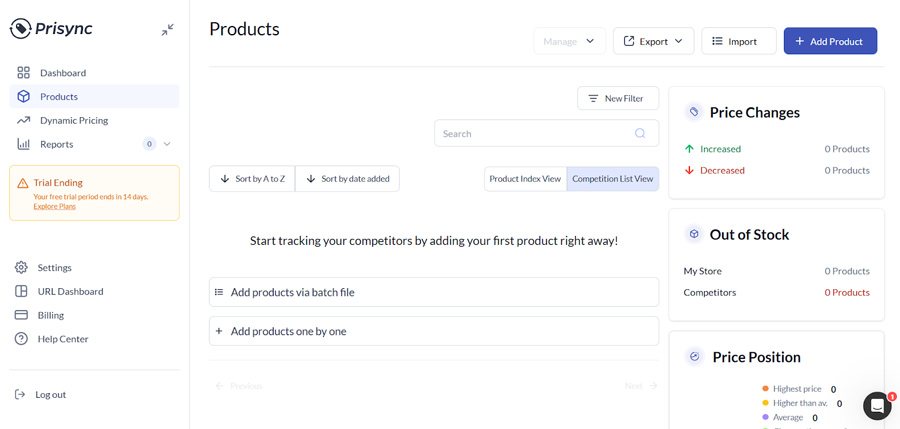
Prisync monitors competitors’ prices and market trends, using AI-driven dynamic pricing to automatically adjust prices for optimal sales and profitability. It’s about maximizing profits with real-time price adjustments
Why businesses need it:
- AI-driven pricing strategies can increase revenue by 10-25% [13].
- 90% of online shoppers compare prices before purchasing [14] [15] —AI ensures competitive pricing.
AI-Based Demand Forecasting – RetailNext’s Predictive Analytics
RetailNext utilizes AI-driven demand forecasting to predict future inventory needs, minimizing waste and maximizing sales.
Proven benefits:
- AI-powered forecasting reduces the number of errors in supply chains by 30-50% [16].
- Businesses using AI for inventory management have a significant reduction, of up to 65%, in lost sales due to out-of-stock [16].
AI in eCommerce Logistics – Amazon Robotics AI
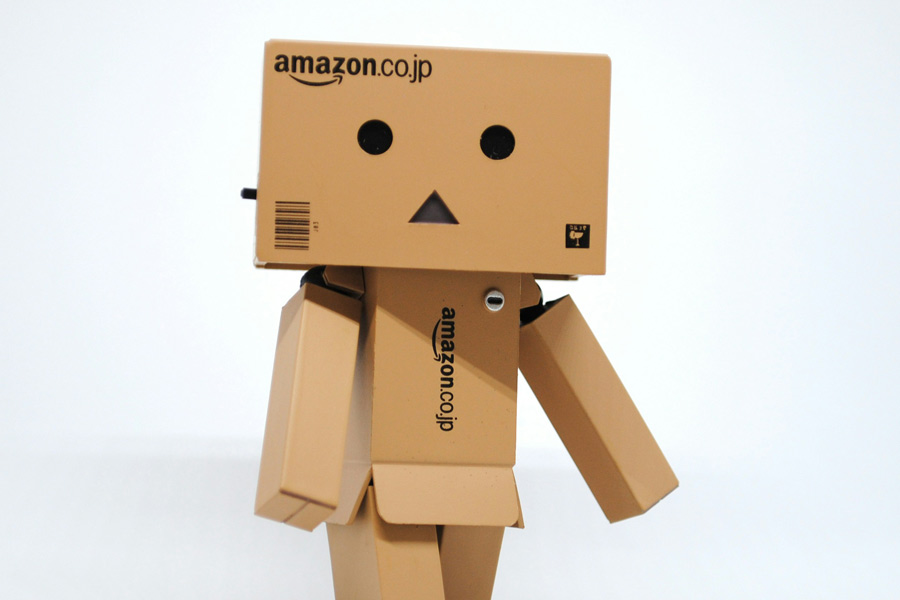
AI-powered warehouse automation for faster fulfillment. Amazon’s robotics optimize order picking, packing, and shipping, ensuring fast and efficient deliveries.
Why it’s crucial:
- AI-driven fulfillment reduces order processing time by 50% [17].
- Warehouse automation reduces logistics costs by up to 40% [18].
AI in Supply Chain Optimization – Shopify’s AI-Powered Demand Planning

Shopify’s AI prevents supply chain disruptions with AI. They integrate AI to help merchants forecast stock needs, identify bottlenecks, and maintain an efficient supply chain.
Why it’s effective:
- AI-powered demand planning reduces excess inventory by 20-30% [19].
- 94% of businesses use AI for supply chain management for more efficient, flexible, and intelligent supply chain operations [20].
Augmented Reality (AR) in eCommerce – Shopify AR & IKEA Place

Transforming online shopping with immersive AR experiences. Augmented Reality (AR) allows customers to visualize products in their environment before purchasing, reducing return rates and boosting customer confidence.
Shopify AR and IKEA Place use AI-powered 3D rendering and object detection to place virtual products in real-world environments using a smartphone camera. Customers can see how furniture looks in their home or how makeup appears on their face before buying. The AI adapts lighting and angles to ensure a realistic representation, leading to higher purchase satisfaction.
Key advantages:
- AR shopping experiences increase conversion rates by 40% [21].
- 71% of consumers say they would shop more if brands offered AR experiences [22].
AI-Powered Content Creation from Jasper AI and Copy.ai
Automating product descriptions and marketing materials. Generative AI creates high-quality, personalized content for product descriptions, email campaigns, and social media, saving businesses time and effort.
Jasper AI and Copy.ai analyze existing brand content and customer engagement data to generate SEO-optimized product descriptions, ad copy, and email campaigns. The AI learns brand tone and style, ensuring that the content remains authentic and persuasive. It can even create dynamic product descriptions that adjust based on customer preferences.
How it boosts engagement:
- AI-generated content can increase click-through rates by 13% [23].
- 73% of marketers say AI helps them create more personalized customer experiences [24].
The Benefits of AI in eCommerce
Based on the examples we know, integrating AI into e-commerce operations delivers a wide range of benefits:
- Enhanced Customer Experience: AI-driven personalization can lead to a 15-20% increase in conversion rates by tailoring product recommendations and marketing messages to individual preferences[25].
- Operational Efficiency: Automation of tasks such as inventory management, customer service, email marketing, and fraud detection reduces operational costs and minimizes human error.
- Improved Decision Making: AI analyzes vast amounts of data to provide actionable insights, aiding in strategic planning and demand forecasting.
- Streamlining the Sales Process: AI-powered tools assist in customer segmentation, lead qualification, and automated follow-ups, ensuring a more efficient sales funnel.
- Increased Sales: Personalized shopping experiences and targeted marketing campaigns contribute to higher sales and customer retention.
Disadvantages of AI in eCommerce
While AI offers many benefits, there are some potential disadvantages:
- High Initial Costs: Implementing AI-driven solutions requires significant investment in software, hardware, and expertise.
- Potential Job Displacement: Automation and AI-driven processes can reduce the need for human employees in areas such as customer support, inventory management, and logistics.
- Data Privacy Concerns: AI in eCommerce relies heavily on collecting and analyzing customer data. Ensuring compliance with data protection regulations such as GDPR and CCPA is crucial to maintaining customer trust and avoiding legal issues.
- Reliance on Constant Updates and Optimization: Machine learning models require continuous monitoring, updates, and refinements to remain effective.
Despite these challenges, businesses that strategically implement AI while addressing its disadvantages can maximize the benefits and stay competitive in the eCommerce landscape.
To ensure a smooth transition and effective implementation, businesses should consult with industry professionals, AI strategists, or technology consultants. These experts can help navigate potential pitfalls, ensure compliance, and optimize AI integration for maximum efficiency and business growth.
Preparing for an AI-Driven eCommerce Future
AI is no longer a luxury for e-commerce businesses—it is a necessity. Companies that adopt AI early gain a competitive advantage by optimizing operations, enhancing customer experiences, and increasing sales. From personalized marketing to AI-driven customer support, businesses that leverage AI effectively will be better equipped to meet evolving consumer demands.
One of the most promising advancements is AI-powered video assistants by eSelf AI, which blend automation with a human touch. These tools reduce employee costs while providing a highly engaging customer experience, making them a valuable addition to any e-commerce strategy.
To stay ahead, businesses should continually explore emerging eCommerce AI tools, integrate AI into their operations, and keep up with industry trends.
Frequently Asked Questions About the Use of AI in eCommerce
Does Shopify have AI?
Yes, Shopify offers AI-powered features such as Shopify Magic, which helps merchants generate product descriptions, email content, and responses to customer inquiries. Additionally, Shopify integrates AI-driven tools for marketing automation, inventory management, and customer insights.
How does Amazon use AI in eCommerce?
Amazon utilizes AI extensively, from personalized recommendations to warehouse automation. AI-driven algorithms power Amazon’s search engine, Alexa voice shopping, dynamic pricing, and automated logistics to improve customer experiences and optimize operations.
How will AI change online shopping?
AI will make online shopping more personalized, efficient, and automated. Features like AI-powered recommendations, visual search, and chatbots will enhance user experiences, while AI-driven logistics and inventory management will streamline business operations.
What is the best AI for eCommerce?
The best AI tools depend on your business needs. Some popular options include eSelf AI for customer support and education, Algolia for AI-powered search, Dynamic Yield for personalization, and ChatGPT for AI-driven marketing automation.
